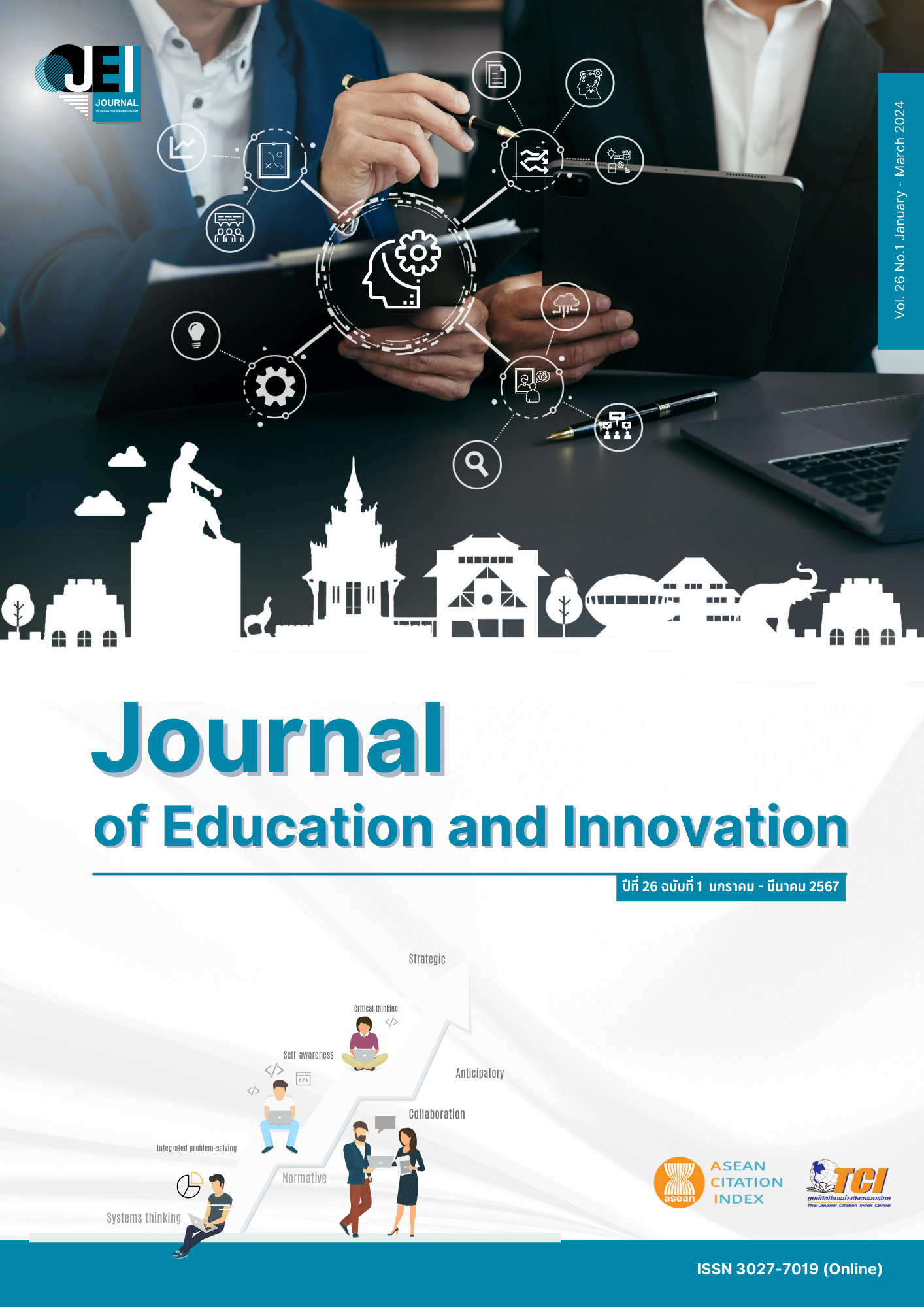DEVELOPMENT OF RISDA SIMULATION BASED LEARNING MODEL FOR INDUSTRIAL ELECTRONICS EDUCATION
Main Article Content
Abstract
This research presents the development of the RISDA simulation-based learning model for industrial electronics education. The research methodology begins with a survey of needs from stakeholders based on the requirements of graduate's competencies, then develops a simulation-based learning and teaching model called the RISDA model. The RISDA model comprises of 5 stages: Recall, Information, Simulation, Discussion, and Assessment. The research tools such as teacher manuals of industrial electronics, learning activity plans, simulation-based teaching media and objective test were constructed. Then, it was used to implement with a sample of 20 undergraduate students, program in industrial technology, Burapha University. The results showed that 1) the research tools created were appropriate at a high level ( = 4.46, SD = 0.57), 2) the developed RISDA model was effective according to the Meguigans standard (the value was 1.01), 3) students' learning achievement after learning was higher than before learning at a statistical significance at the .05 level, and 4) learners who had learned using the RISDA model had their satisfaction at a high level (
= 4.48, SD = 0.71). The developed RISDA model can promote learners' competencies in line with 21st century learning skills and appropriately accommodate the needs of the workplace.
Article Details

This work is licensed under a Creative Commons Attribution-NonCommercial-NoDerivatives 4.0 International License.
The owner of the article does not copy or violate any of its copyright. If any copyright infringement occurs or prosecution, in any case, the Editorial Board is not involved in all the rights to the owner of the article to be performed.
References
Agung, W., S. (2020). Development of research-based learning in introduction to biomedical engineering course for undergraduate electrical engineering students, 10th Electrical Power, Electronics, Communications, Controls, and Informatics Seminar (EECCIS) (pp. 273-277).
Chen, L., Yoshimatsu, N., Goda, Y., Okubo, F., Taniguchi, Y., Oi, M., Konomi, S., Shimada, A., Ogata, H., & Yamada, M. (2019). Direction of collaborative problem solving-based STEM learning by learning analytics approach. Research and Practice in Technology Enhanced Learning, 14. https://doi.org/10.1186/s41039-019-0119-y
Eastern Economic Corridor Office. (2023). Business opportunities. Retrieved January 2, 2023, from https://www.eeco.or.th/en.
Kanyawit, K. (2020). Effective teaching management through cooperative online learning activities for engineering education. The 5th International STEM Education Conference (iSTEM-Ed) (pp. 86-89).
Khemmani, T. (2016). Science of teaching knowledge for efficient learning management. Bangkok: Chulalongkorn University Press.
Nutchanat, C. (2021). Management of learning activities to promote systematic thinking skills for student teachers training in technology education. The 6th International STEM Education Conference (iSTEM-Ed) (pp. 1-4). Pattaya, Thailand.
Ruben, A., & Ajay, B., (2021). Analysis-Design-Justification (ADJ): A Framework to Develop Problem-Solving Skills. IEEE Global Engineering Education Conference (EDUCON) (pp. 366-372).
Sivadol N., Nattapong I., & Somsak A. (2021). Learning and teaching activity management using research-based learning model for telecommunication engineering education. Technical Education Journal KMUTNB, 12(1), 51-63.
Stehle, S. M., & Peters-Burton, E. E. (2019). Developing student 21st century skills in-selected exemplary inclusive STEM High Schools. IJ STEM Ed, 6, 39.
Zhao, Y., & Wang, L. (2022). Correction: A case study of student development across project-based learning units in middle school chemistry. Discip Interdscip Sci Educ Res, 4, 18.


